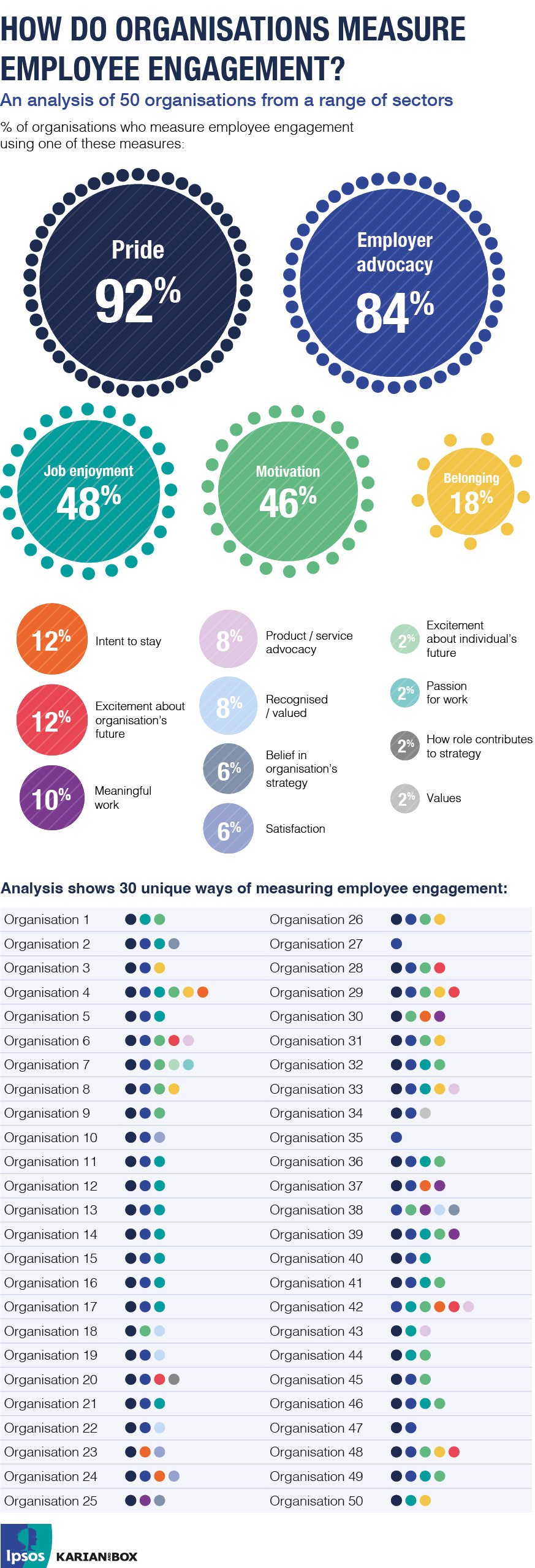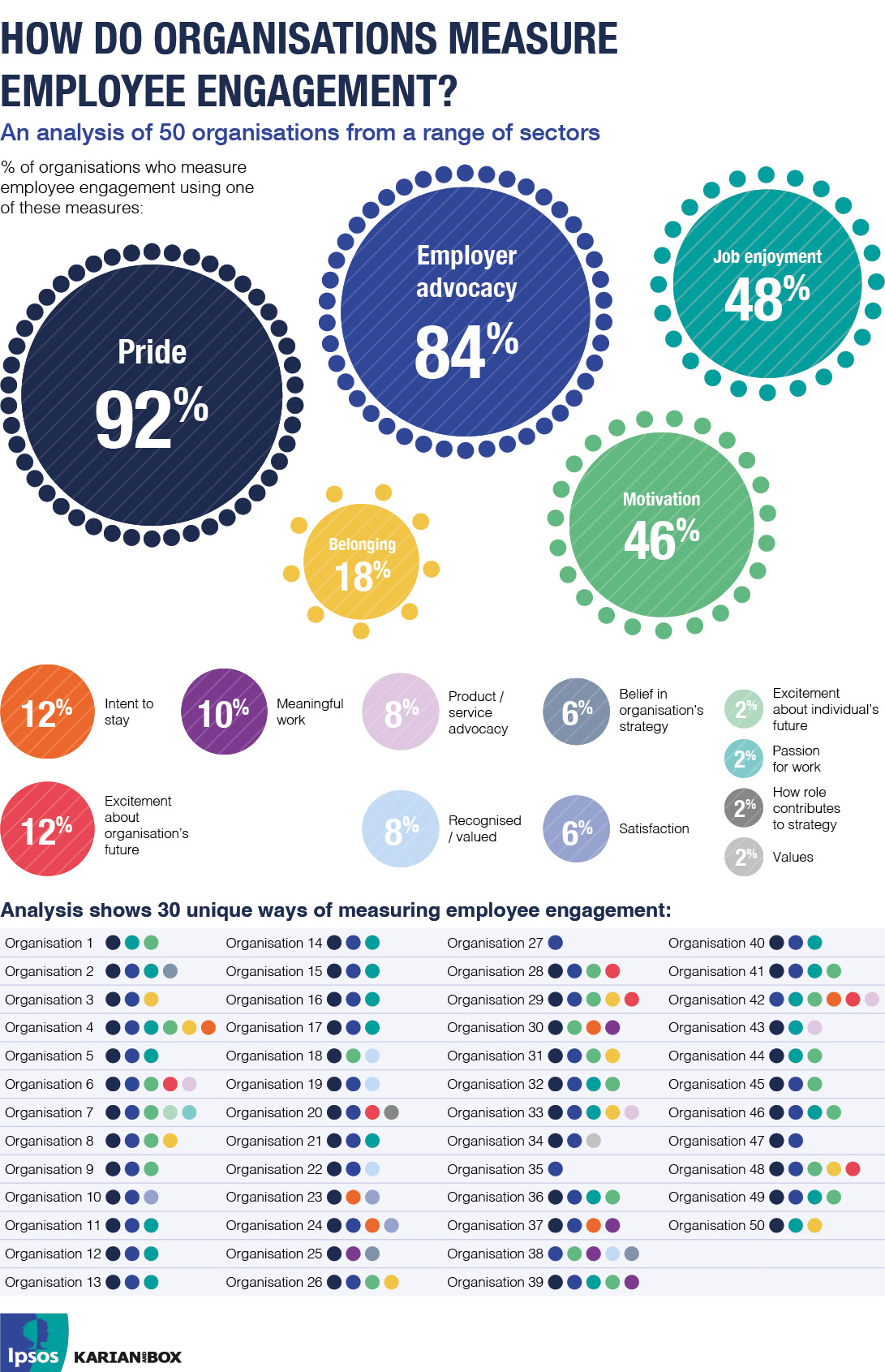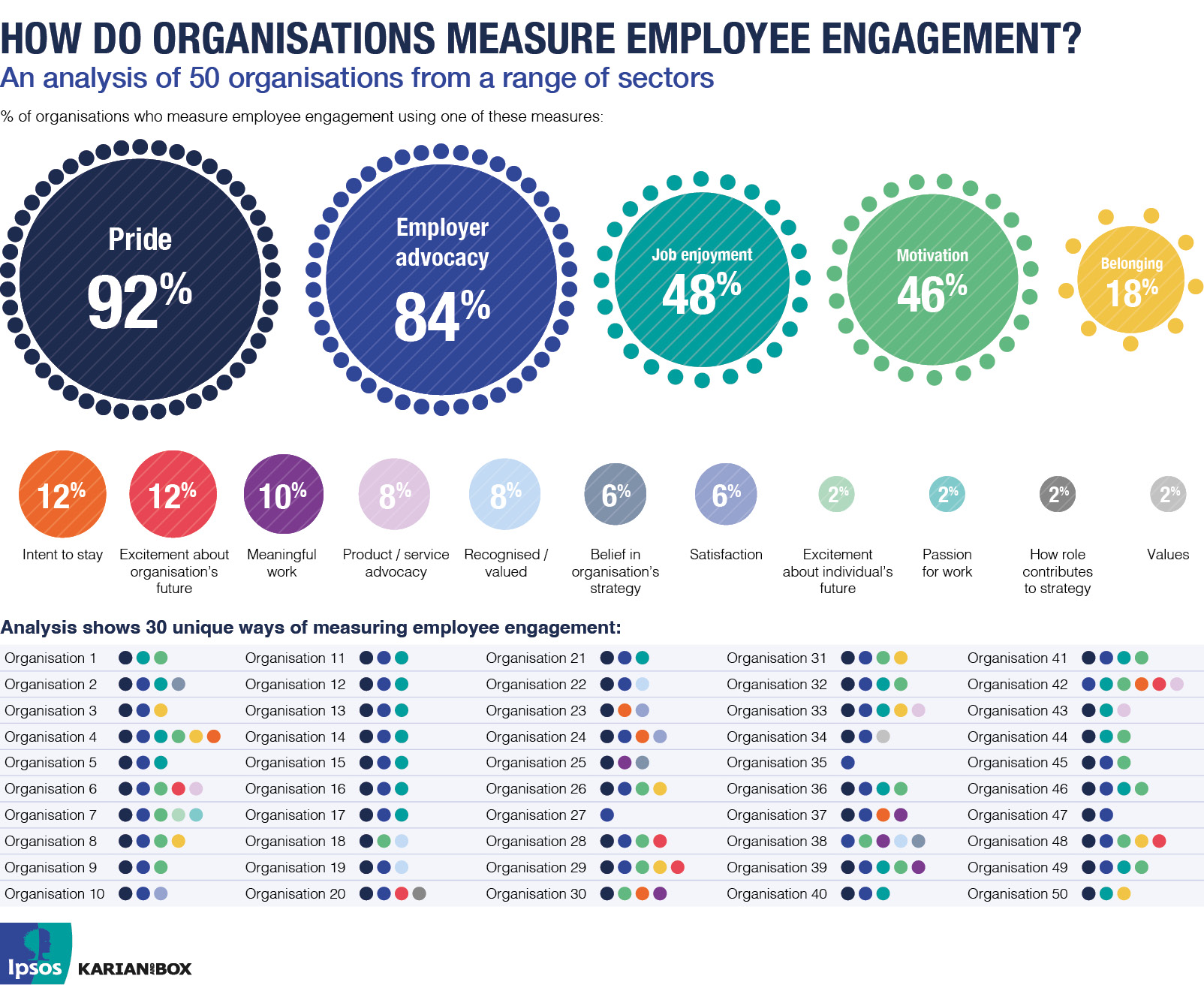Our Principal Consultant Joshua Reed explores how 50 organisations measure employee engagement through employee research, also providing some initial pointers for organisations looking to build their own bespoke employee engagement index.
First, let’s take a recap on the terminology and broader goals of employee engagement:
What is employee engagement – why does it matter?
Employee engagement is originally an academic term, describing employees having strong commitment to their organisation and being more likely to give discretionary effort. Engaged employees care more and give more – not because they have to, but because they want to.
Engaged employees feel connected to their organisation and want to be part of its future success. A higher proportion of employees who feel that way is nearly always a good thing for an organisation – with decades of research showing tangible links between employee engagement and improved safety, absence rates, turnover and productivity.
How is employee engagement linked to the wider employee experience?
A key aim of most organisations’ people strategies is to positively shift the dial on engagement – and employers can achieve this by influencing employees’ perceptions of their organisation.
From providing training and career opportunities, to giving clear strategic direction, and to creating a strong and healthy culture – these factors and more shape an employee’s overall experience of working somewhere.
Employers who can craft a positive overall employee experience are those most likely to foster high levels of commitment and motivation in the workplace.
Measuring employee engagement as part of employee research
This naturally leads us to the big question: how can we measure employee engagement?
You might suppose that such a key facet of the employee experience would come with its own certified (or at least standardised) measurement within organisations. Well...no. And for an important reason:
Engagement presents differently across organisations. It’s affected by nuanced behaviours and actions, and is influenced by factors including sector, organisational structure, company values and culture.
There are some common factors, of course, but a robust, accurate measurement of engagement is only really possible when it’s tailored to the specific characteristics of employees in your workplace.
How employee engagement measures vary across organisations
The data visualisation below explores how 50 organisations measure employee engagement through employee research – highlighting just how varied approaches can be.
There is no one-size-fits-all approach, which is why we caution against using off-the-peg research models instead of a bespoke one.
Some key insights include:
- Engagement is nearly always measured via an ‘index’, most often comprised of three to five questions to capture both breadth and depth.
- Pride is the most common indicator, closely followed by employee advocacy – every organisation asks at least one of these two questions.
- Job enjoyment, motivation, belonging and intention to stay also rank high.



How to start building your bespoke employee engagement measure
We’ve seen that measuring employee engagement is important, but also that engagement presents differently across organisations. So, how can your organisation get started in defining what employee engagement looks like in its respective context?
We advise getting inquisitive. Go deep. The best and most representative engagement indexes we see – which ultimately are the ones best able to predict organisational performance – are those built from the ground up.
Soliciting opinions from a diverse sample across your organisation (through a pulse survey, for example) is a great place to start. Ask the question: ‘how would you describe an engaged (or disengaged) employee in your part of the business?’. And remember to test the robustness of your working hypotheses with a validation panel made up of operational and senior stakeholders.
Is employee engagement alone enough?
Now for the pivot. The criticality of engagement within the overall employee experience should not be understated, but is engagement alone enough to secure organisational performance and longer-term prosperity? Not quite.
The world has shifted in recent years in ways we can scarcely comprehend. VUCA (volatility, uncertainty, complexity, and ambiguity) is becoming a better descriptor of our BAU (business as usual). Researchers and practitioners alike are quickly realising that the conditions facilitating high engagement do not always reach far enough to achieve business results. What’s more, the war on talent means engaged employees are becoming more and more prone to leaving organisations.
Our response to this is to step back and acknowledge the broader factors in modern day society which, alongside employee engagement, are responsible for shaping how we feel and what we do at work. Enter the Ipsos Karian and Box Employee Experience Research Framework.
If you’d like to know more about our EX Research framework, we’d love to know more about your organisation. Please feel free to drop us a line at info@karianandbox.com for an in-depth conversation with a member of our Consulting team.
Commentary by Joshua Reed
Design by Victor Pardos Costa
Analysis by David Lasky
Ipsos Karian and Box







